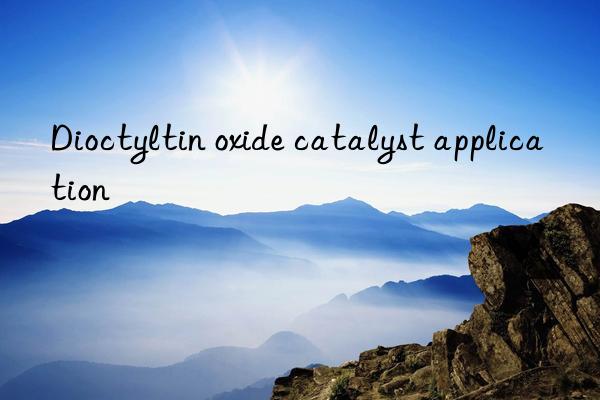
Dioctyltin oxide (chemical formula: C16H34OSn), usually abbreviated as DOTO, is an important organotin compound used as a chemical compound in the chemical industry. Efficient catalysts are widely used. It is known for its good catalytic activity, selectivity and stability, and plays a key role in polymer chemistry, esterification reactions and transesterification reactions.
Applications in polymer chemistry
In the field of polymer chemistry, dioctyltin oxide is particularly suitable for catalyzing the synthesis of polyesters. For example, in the synthesis process of polybutylene terephthalate (PBT), dioctyltin oxide can effectively accelerate the esterification reaction and improve the yield and quality of the polymer. Additionally, due to its lower toxicity compared to other organotin catalysts such as dibutyltin oxide, dioctyltin oxide becomes a more environmentally friendly choice, especially in applications where catalyst residues are strictly limited.
Production of PVC heat stabilizer
Dioctyltin oxide also plays an important role in the production of PVC (polyvinyl chloride) heat stabilizers. PVC easily decomposes at high temperatures, and adding heat stabilizers can prevent this decomposition and maintain the performance of PVC. As a catalyst, dioctyltin oxide can promote the effective synthesis of heat stabilizers, thus improving the quality and service life of PVC products.
Paint and coating industry
In the paint and coatings industry, dioctyltin oxide is used to enhance the properties of coatings. It can participate in the curing process of the coating as a catalyst, speed up the drying speed of the coating, and improve the hardness and weather resistance of the coating. This makes dioctyltin oxide one of the important additives for the production of high-performance paints and coatings.
ester exchange reaction
The transesterification reaction is crucial in the production of biodiesel, and dioctyltin oxide, as an efficient catalyst, can significantly increase the reaction rate and yield. In the transesterification reaction, vegetable oil or animal fat reacts with alcohol to generate biodiesel. The presence of dioctyltin oxide can effectively lower the reaction temperature, reduce the formation of by-products, and improve the purity of biodiesel.
Antioxidant production
In the production of antioxidants, dioctyltin oxide can also be used as a catalyst. Antioxidants are used to protect various materials from oxidative degradation and are widely used in plastics, rubber, lubricants and other fields. By using dioctyltin oxide as a catalyst, the synthesis efficiency of antioxidants can be improved and product quality can be ensured.
Conclusion
In summary, dioctyltin oxide has demonstrated outstanding performance in many fields of the chemical industry with its unique chemical properties and catalytic properties. Excellent application value. Whether facilitating polymer synthesis or increasing the efficiency of production of paints, coatings, biodiesel and antioxidants, dioctyltin oxide has proven itself to be an indispensable catalytic tool. With the advancement of science and technology and the improvement of environmental awareness, we are expected to see more innovative application scenarios in the future, allowing dioctyltin oxide to play a greater role in green chemistry and sustainable development.
Extended reading:
bismuth neodecanoate/CAS 251-964-6 – Amine Catalysts (newtopchem.com)
stannous neodecanoate catalysts – Amine Catalysts (newtopchem.com)
polyurethane tertiary amine catalyst/Dabco 2039 catalyst – Amine Catalysts (newtopchem.com)
N-Methylmorpholine – morpholine


